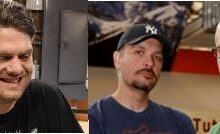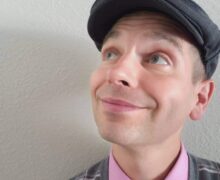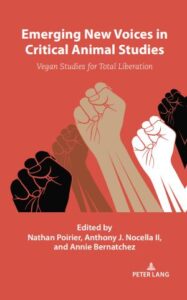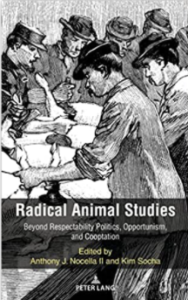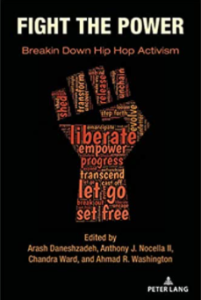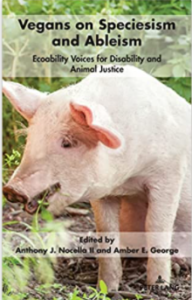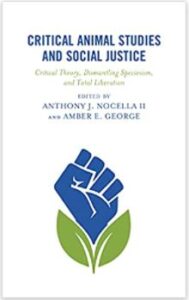ICAS Scholar-Activist Profile Series – Ocober 2014: Johnny Lupinacci
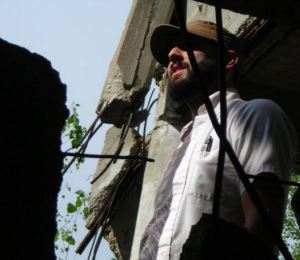
What catalysed your activism?
Born and raised in Southeast Michigan as a working class kid, I was exposed to and witnessed a lot of social injustice. I grew up surrounded by labor union organizers and civil rights activists. I also spent a significant amount of time on Lake Superior and I developed a strong connection to what, at the time, I would have referred to as “nature.” So from a young age I was immersed in two places that would instill in me a passion for belonging to these communities and an even stronger passion for justice in relationship to the health and sustainability of the members of both of these communities.
It was at a young age on the shoreline of Lake Superior, listening to the trees sway in the wind and hearing the buzz of all the insects swarming so densely it looked like a dark fog had settled into the woods, that I realized how our ecosystems were teaming with diverse species. I stood in wonder of how humble it felt to realize that we as humans only made up a small number of the species on the planet. It seems like a rather trivial realization to have, but it was from that moment that I began to be critical of human impact on the environment.
From as early back as I can recall, I was drawn toward activism and lived in two separate but similar worlds. I was heavily influenced by the overt classism and racism in Detroit and the surrounding area of Southeast Michigan, and found myself involved in civil rights and union organizing as a young activist. As an adolescent, I had connected with environmental activists who were working to protect wetlands and the green spaces that were rapidly being lost to new construction. All of this came to a head for me while I was studying to become a high school teacher in 1999 and the two traditionally separate worlds of environmental and social justice activism melded for me. I was beginning to notice the overlapping aspects of resisting globalization and it was solidified for me as my friends from both the social justice groups and the environmental advocacy organizations began to organize and deliberate in Seattle, WA to protest and shut down the World Trade Organization (WTO) meetings.
All my life I had grown up hearing different viewpoints on Detroit’s politics and economy, but it wasn’t until this moment that I felt like I was exposed to a larger network of activists who all seemed to understand that not only was capitalism a problem for social justice, but also that capitalism, and many of its associated values and beliefs, was predicated on a set of cultural beliefs and traditions that perpetuated both social suffering and environmental degradation toward our possible extinction on this planet. It really wasn’t too far from that realization for me that I began to connect with activists, scholars, and educators that were making the connections between racism, sexism, and classism and the subjugation of animals in a human supremacist culture. Making those connections I began to build relationships with other activists who were working on all fronts to support the liberation of all species whether it be trees, plants, insects, reptiles, or animals.
So that is a bit of the overall backstory, but on a more personal and reflective note there are a few moments from my youth that stand out to me. Although I grew up close with dogs, my earliest memory of the animal industrial complex was a trip to Sea World. So while it wasn’t until I was much older that I can say I identified as an activist oriented toward—and inspired by—a total liberation framework, I remember bearing witness to animal entertainment in the 1980s that would impact my life’s choices to this day. I can share a story I recently shared in a book chapter that lays out how in modern schools and public pedagogies, like amusement parks, we are subjected to animal cruelty and exploitation.
As a child I can recall the day that my family went to Sea World in Ohio. For a lot of folks in the Midwest it was not uncommon for working class families to take day-trips to nearby amusement parks. However, there was a particular vacation and a very specific marine animal theme park where we piled into the station wagon with my parents and drove from Detroit to Aurora, Ohio to Sea World (now thankfully and successfully closed). Located over 2,500 miles from the Pacific and at least 600 miles from the Atlantic coast, Sea World had penguins, dolphins, and of course “killer whales” that performed in shows for packed bleachers of people that oohed and ahhed as these majestic creatures swam in circles and entertained. I remember thinking that this seemed really strange and also somehow felt not right. It wasn’t like I was some super ethical kid tuned in to animal suffering, in fact I was pretty desensitized to a lot of everyday violence, but this display of cruelty seemed obvious. I will never forget my sister and I standing in the “splash zone” near the pool watching the orcas that all seemed to be called Shamu. While some of the details of that day are foggy, what I do remember clearly is the majestic orca swimming laps around the seemingly giant pool of water. This beautiful, social being with eyes that clearly communicated emotion surfaced, dipped, and dove through the water while circling the surrounding walls. She surfaced, dipped, and dived again and again as she continued to swim laps in the water. Occasionally, she got to join one or two other orcas and they performed tricks for special feedings as they jumped from the water, swam with humans in matching diving suits, and splashed people who had come to watch them as a form of entertainment.
The memory is so strong I can still smell the pool and hear the cheers from the crowds of families. I remember feeling sick over how the whole thing seemed; however, when I asked about it my father told me to listen to the announcer. The announcer boasted of how well these animals were taken care of and how they were rescued from certain peril in the wild and fed regularly in the pools. He said they loved to playfully train and they lived to perform. What was obvious to me at the young age of 9 was that these animals were captives. What my sister and I could see as children was that Shamu’s imprisonment was a form of entertainment to the hundreds of people sitting in seating erected to make a spectatorship of her slavery and we never returned to that spectacle as a family again.
So those experiences compounded with the opportunity to study EcoJustice Education at Eastern Michigan University and learn how atrocious modern culture is in regards to our more-than-human kin offered me the gift of being able to engage in anarchist pedagogies that are forever catalyzed in my heart, mind, and body. They are what I dedicate my life to. In service to all and servant to none, I engage in scholar-activism to alleviate and eliminate human supremacy and the interconnected ways it systematically contributes to social suffering and environmental degradation.
What are some lessons you’ve learnt along the way?
There are probably hundreds, if not thousands, of lessons I have learned along the way. However, I can probably say the most useful has been to pay close attention to language and to be humble to the multitude of species and the diverse wisdom and wise ways of the more-than-human world as well as those human cultures that live in accordance with living systems and not in pursuit of domination of one another and the environment. In other words, I learned as a young person that dominant Western ways were far from superior and that even when critically recognizing for how they work, they often still exist and get passed forward through language and the patterns of everyday life shaped by, and shaping, that language. So, I think of each day as another day that I am in recovery from misogyny, racism, ableism, consumerism, and all those systems of domination held up by human supremacy in modern culture. I approach my work from this position and not one in which I have some moral higher position or authority over how any other individual can or should think or act. Instead I work to advocate for equality by working with others to recognize, resist, and rethink our day-to-day actions to better support total liberation.
Do you have strategies for avoiding compassion fatigue?
I am not sure I am the best person to ask this question as I seem to be very desensitized to a lot of the violence and I am pretty balanced in that I truly enjoy and get energy from this work. I would say though that one of my strategies for fatigue in this line of work is to not let pessimism or nihilistic intellectualism seep into the work. In doing this work a lot of folks seem to get short-sighted and burn out or get really depressed. I understand how depressing this work can seem, but it’s important to do all you can to highlight the multitude of amazing acts of resistance on the planet. I also think it is super important to belong to a community—to belong to something bigger than we have alone as humans. For me that is to work toward belonging to a place and to all the multitude of species co-existing in that particular place. Although I recently became a transplant activist now finding my habitat in the Northwest of United States of America, I have always avoided fatigue by belonging to my home in Michigan and in developing my sense of place in Eastern Washington and Northern Idaho.
I belong to Detroit. More specifically, I belong to the Great Lakes region. I realized that the feeling I have when I am home is a deep love that defines who I am as a person. I used to say I felt somehow like I have an umbilical connection to the Great Lakes and that I would forever be a child of Detroit. Now as a transplant to the inland Pacific Northwest of the US, I work to make those types of familial connections with a place new to me. I can imagine this sounds silly or overly romantic but I think it is important to recognize the harmony, and sometime discord, we have with the networks of relationships and what those relationships can teach us when we humble ourselves to the wisdom of place.
For example, after college I moved back to Detroit as an adult and I was ill equipped to understand why I was drawn to return. In fact, I confused my desire to once again belong and reunite with my memories with the savior-like reasoning I learned in my privileged schooling and activist networks that often ignored local wisdom. I told everyone I knew, including myself, I was going to teach and live in Detroit because I wanted to save the city. Similar to those environmentalists that proclaim and boast they are out to save the planet. Steeped in privilege and power I became a Detroit teacher and was dead set on making a difference. While I still believe teachers can make a difference and that I certainly had positive contributions to make as a teacher in Detroit, I learned that much of what I knew or was taught in school as reason and knowledge was diseased and that I needed to listen to what I was feeling, not what I had learned to think. It is these life-changing moments that make us aware of the how we are all connected through the relationships, the landscape, and the experiences of place. This sort of belonging is an infinite source of strength against fatigue and sends me often into remembering Detroit and to the all those places to which my heart feel akin. I also think I find a lot of strength in being with my family and friends where we are attentive to love and the importance of such relationships. I live to be in connection with the cold, clean awakening of being near Lake Superior or on walks in the tall trees and crisp mountain air of the Pacific Northwest. Even in memory I get strength from such experiences. So whenever I am feeling overwhelmed, bogged down, or even gloomy I think relationships that reconnect me with the wonderful gift of existence and belonging.
Just recently a friend asked how I found the time or energy to stay dedicated to work that is so often marginalized and dismissed. I had to think for a moment because that sort of assumption about this work rarely enters my mind. I explained to him how I often just think about the places to which I owe too much to for me to not keep on working. When I feel like fading a bit, I find myself daydreaming of times when as a child I would spend summers along the lake’s vibrant shoreline. I think about how my best friend Tara and I would spend night and day playing along the shoreline, exploring every aspect of the terrain. Anytime I am feeling fatigued in this work I can close my eyes and in seconds smell the breeze, see the trees, and swear I was standing in the black dirt that when wet squishes like tar. I can hear Tara’s collar clanging around as she ran ahead or led us back to my family. Somehow that region claimed me as a young boy, and like the city of Detroit and the forests of Northwest, forever I belong to these places.
I am writing this interview as I am looking out over a rocky sunset in Northern Washington just outside of Spokane where I find peace in the soaring eagles that frequent the nearby lake or the osprey that swoop down and grab fish for their supper. I am reminded that just east of where I live in Idaho our wolf sisters and brothers, whose howls can be heard in the night, are in danger as they are hunted and portrayed as villains in yet another attempt by dominant culture to exert and exhibit dominance in a patriarchal human-supremacist culture. These memories and encounters remind me to listen to the call. Not the call to save the world, but the call we listen to when our heart tells us to remember how it is we belong, the call that allows us to fully love the rivers, mountains, trees, lakes, our friends and family, the memories of our parents and relatives, and all those who it is we love in body and heart. When we listen to this call, despite how squelched out it gets by modern culture, we are alive and energized. With this kind of strength we can move together through the harmony of heart and mind in sync with the places that claim us as members.
What are you currently involved in/current projects?
In addition to learning how to be a member of my new local relationships and being a good partner and father, I am a professor in a college of education and work with educators and future educators to rethink schooling and reclaim education from the authoritarian violence of human supremacist modern schooling. While there is a lot of work in my day-to-day writing and teaching to engage in critical and ethical community-centered restructuring of schools and classrooms via curriculum, I also work with a dedicated group of activist-scholar educators to critically and ethically examine what it means to be exist as humans and how we might organize, teach, and learn together in our diverse communities to support taking direct action towards social justice and sustainability on this wonderful planet. I recently co-authored a book titled “EcoJustice Education: Towards Diverse, Democratic, and Sustainable Communities” with two radical and ethical scholar-educators Rebecca Martusewicz and Jeff Edmundson. I am currently working on an exciting project to evaluate children’s literature commonly used in science education for anthropocentrism and developing a tool for educators to use when they are considering books to supplement instruction. I am also working with and writing together with critical disability scholar-educators to rethink the exclusive practices of who and what is included in radical work to envisions sustainable communities when so much of what is currently called inclusive is based on socially constructed privilege in the form of race, class, ability, and other perceptions of normalcy. I am an active learner and activist-scholar in the Institute for Critical Animal Studies and I can say that ICAS, and CAS, informs nearly, if not, all the of the projects in which I engage.
Those are some of the projects recently occupying my time, but it is in the spirit of anarchism I turn my attention in this interview toward the everyday projects that I find are an important part of working toward cultural change.
I truly believe that if we, enactors of dominant Western industrial culture, do not rethink the framework by which meaning is constructed then we are destined to recreate the very predicament that we set out to change. Inspired by movements to liberate our human and more-than-human kin, I am currently involved in projects to explore and implement practical steps toward engaging in cultural change through activist scholarship aimed toward supporting a paradigm shift from rational, mechanized, and human-centered thinking to discourses that are local, situational, and supportive of living systems. Above all I strive to put forth a daily effort to make friends, engage with adversaries, and share stories of hope and resilience.
In such authoritarian times it is important that we challenge dominant perceptions of what is legal or acceptable and imagine collectively and with open hearts and minds what could be possible. So I am always working on making friends, and facilitating others to make friends, with other humans and especially with us being open to acting kindly and with respect toward more-than-humans––be it some animals, some trees, a river, the wolves, the walruses, the black-capped chickadees that sing on some of the coldest damp mornings, the food that we grow, or the mycelial networks in the soil that gives us life. So my life project is to belong to this planet in a way that exemplifies compassion and respect for all and I believe that we learn compassion and dependency when we understand in an ecological sense what it means to be friends. We learn what it means to belong without framing that understanding as human. We learn to join the fight to overcome the isolating ills of Western industrial culture when we take action with our diverse sisters and brothers to interrupt, inspire, and expose!



